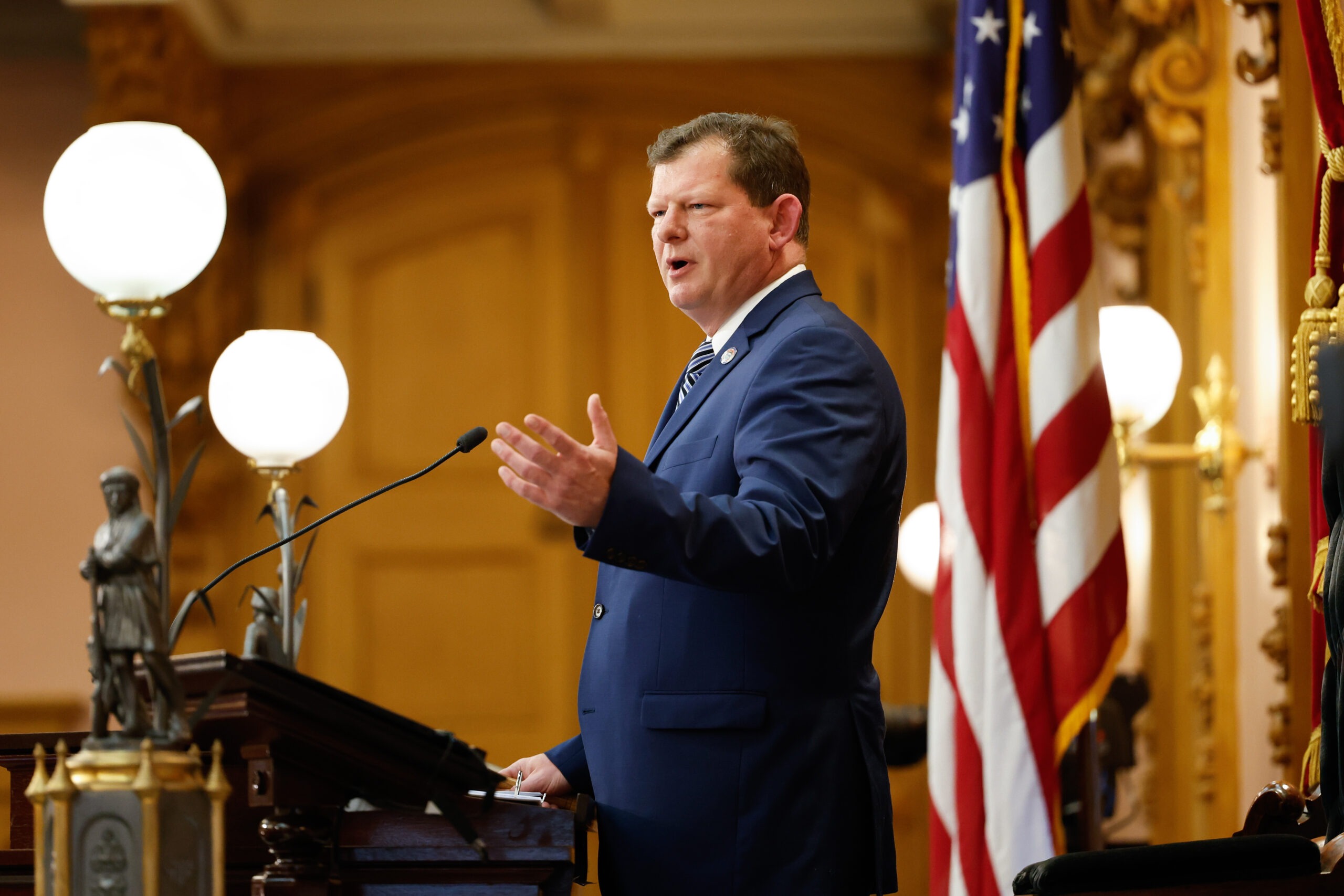The Republicans’ aim to unseat Ohio House Speaker Jason Stephens in a prolonged and contentious battle appears to have failed, according to preliminary results from the Secretary of State’s website analyzed by News 5.
While votes are still being tallied, Stephens (R-Kitts Hill) appears to have emerged victorious. If his backers remain steadfast, he could potentially secure the speaker’s gavel for another two years.
In response to the outcome, Stephens remarked, “The shadowy out-of-state dark money groups who outspent us 2 to 1 learned a valuable lesson last night: the Ohio Statehouse is not for sale.” He expressed anticipation in returning to the task of serving Ohioans and advancing conservative legislation beneficial to all.

Before the election, Stephens could sustain a loss of up to four seats in March while retaining his position as speaker. He requires just 50 votes to maintain leadership.
Of those likely to support Stephens, 15 faced challengers, with only four falling short:
State Rep. Sara Carruthers (R-Hamilton) lost to challenger Diane Mullins by a margin of 53-47%.
State Rep. Brett Hillyer (R-Uhrichsville) lost to Jodi Salvo by a margin of 58-41%.
State Rep. Gail Pavliga (R-Portage County) lost to Heidi Workman by a margin of 61-38%.
State Rep. Jon Cross (R-Findlay) lost to Ty Mathews by a margin of 65-34%. Cross, serving as the Assistant Majority Floor Leader, will need to be replaced in leadership next term.
This electoral showdown traces back to political turbulence from January 2023 and the circumstances surrounding Stephens’ ascension to power. Previously, the Republican caucus had selected state Rep. Derek Merrin (R-Monclova) as speaker months before the full House floor vote.
During the actual vote, 22 Republicans (dubbed the “Blue 22” by their counterparts) and 32 Democrats supported Stephens for speaker, while the majority of Republicans backed Merrin. Although still conservative, Stephens is notably more moderate than Merrin.

Five of Stephens’ original supporters were not seeking reelection, either due to term limits or, in the case of former Rep. Bob Young, resignation following multiple arrests and a conviction for domestic violence. Nevertheless, Stephens appeared to gain five additional members over the year.
To break down the figures further, Stephens can count on 22 Republican votes and 32 Democratic votes, totaling 54 members. Hence, the speaker could afford to lose four allies and still secure 50 votes.


